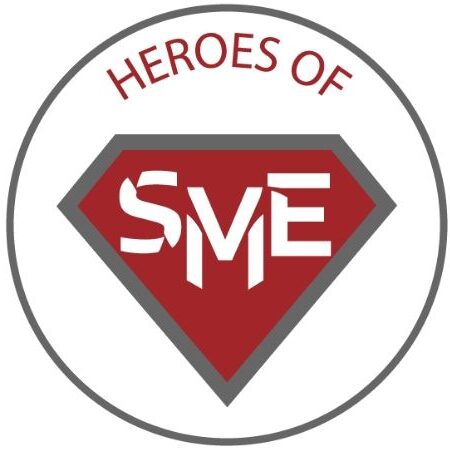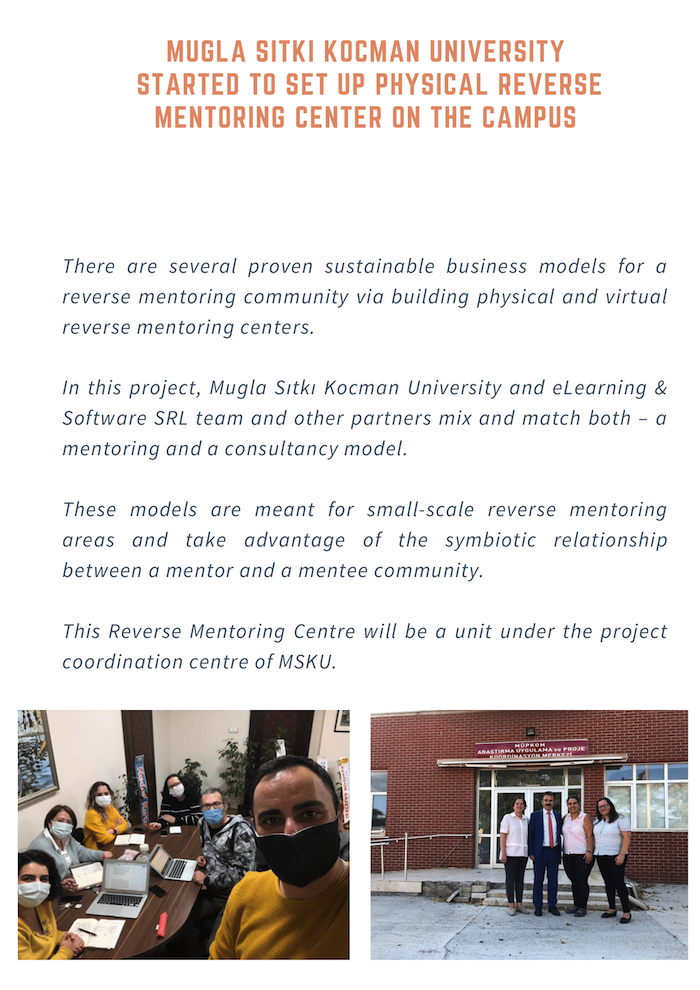The Mentoring community includes two types of centers:
• Physical centers.
• Virtual centers.
Some of the partners, like Adinvest International (Belgium) and Warsaw University (Poland) already have physical mentoring centers. The existing centers will be improved using HE – Men’s deliverables.
Mugla Sıtkı Kocman University (Turkey) will set up physical centers on the campus.
In addition to this, virtual mentoring centers will be created to be used in other partner countries as the main solution or as an addition to the physical center. The main aim of this comprehensive mentoring community is to involve the regional stakeholders in He-Men’s implementation processes.
There are several proven sustainable business models for a mentoring community via building physical and virtual mentoring centers.
In this project, Mugla Sıtkı Kocman University and eLearning & Software SRL team and other partners mix and match both – a mentoring and a consultancy model. These models are meant for small-scale mentoring areas and take advantage of the symbiotic relationship between a mentor and a mentee community.
There are two big advantages to this approach.
For one, you’re spreading out risk between two businesses—so long as one is performing well, it can make up for a downturn in the other.
Secondly, space can provide a nice pipeline of talent and projects for mentoring, while the mentorship can provide nice work opportunities for the member.
Also, this output’s methodology will provide guidelines for building experiences with peer assessment in relation to real situations with local/regional chambers.
Mugla Sıtkı Kocman University (Turkey) will set up physical centers on the campus.
In addition to this, virtual mentoring centers will be created to be used in other partner countries as the main solution or as an addition to the physical center. The main aim of this comprehensive mentoring community is to involve the regional stakeholders in He-Men’s implementation processes.
There are several proven sustainable business models for a mentoring community via building physical and virtual mentoring centers.
In this project, Mugla Sıtkı Kocman University and eLearning & Software SRL team and other partners mix and match both – a mentoring and a consultancy model. These models are meant for small-scale mentoring areas and take advantage of the symbiotic relationship between a mentor and a mentee community.
There are two big advantages to this approach.
For one, you’re spreading out risk between two businesses—so long as one is performing well, it can make up for a downturn in the other.
Secondly, space can provide a nice pipeline of talent and projects for mentoring, while the mentorship can provide nice work opportunities for the member.
Also, this output’s methodology will provide guidelines for building experiences with peer assessment in relation to real situations with local/regional chambers.
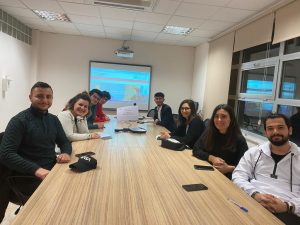
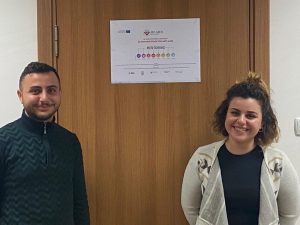
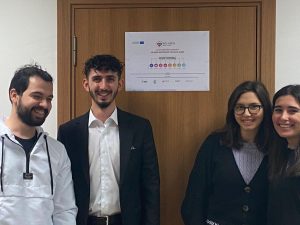
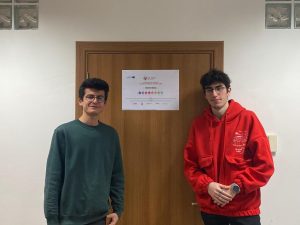
HE-MEN PROJECT REVERSE MENTORING COMMUNITY
IN WARSAW UNIVERSITY OF TECHNOLOGY
Reverse Mentoring Community was established in 2021 within the He-Men Project.
The community has an open space working environment. Civil Engineering Faculty has provided a meeting room for this community. Reverse Mentoring Community has 10 mentors – students members and they are from different departments of the Faculty. The average age of the Mentors is 22.
The members of the He-Men Community planning to start working with representatives of small and medium-sized companies, the different departments of WUT and – in further future – with the Third Age University Representatives of WUT. They would like to support digital skills of those students (+60 ages).
In the near future, the He-Men Mentoring community plans to organize a training seminar for representatives of small and medium-sized companies in the use of the latest software in the field of designing construction processes in construction and enriching the knowledge and skills of handling the most popular social media. Mentors will be members of the He-Men community and selected students. On the other hand, the mentees will be representatives of the construction industry over 50 years of age. The planned reverse mentoring process in the training will consist of the following stages:
Stage I. Conducting a survey among selected representatives of the construction industry, the purpose of which is, among others:
- – specifying the goal and analysing the needs of mentored people,
- – defining specific competence areas in which more experienced employees need supplementing their knowledge and support from young mentors,
- – determining the potential benefits for mentors and their mentees, resulting from the training program,
- – formulation of the expected results of the mentoring process.
Stage II. Selection of pairs of mentor – mentee. Each of the mentees will be able to indicate a person with whom they would like to cooperate. If there is no indication – the choice of a mentor for a specific mentee will be made by one of the mentors – members of the HSME community.
Stage III. Cooperation – Each mentee is obliged to accept a specific scope of cooperation and follow the rules of conduct defined at the beginning, relating to the mentor-mentee relationship.
Stage IV – Evaluation of the achieved results of the mentoring process by conducting further surveys.
He-Men community members anticipate that the reverse mentoring process will be educative for both sides of the training. On the one hand – some older people with age and experience will supplement their knowledge in certain areas and get to know the point of view and perception of the same issue by the young generation of civil engineers entering the profession. However, for young mentors, the need to “find themselves” in the role of a teacher will also be very educational. They will have the opportunity to feel “on their own skin” that in the work of a mentor extremely important are, among others, aspects such as: the ability to control one’s own emotions, patience, empathy and understanding, the ability to listen and provide constructive criticism and factual feedback, ask appropriate and relevant questions, constantly monitor the progress of the student’s work and – if necessary, guide him to right track “etc. Finally, the young mentors will have the opportunity to add to their existing skills. In an atmosphere with both-sided consultancy, it will be sure be a win-win experience.
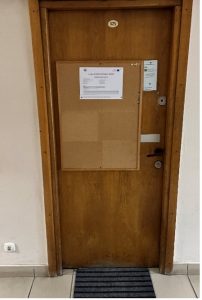
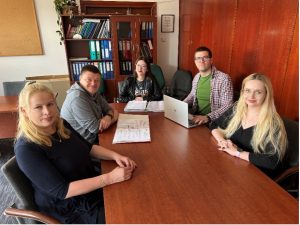
Office entrance and “the team”: (from left) Mariola Książek-Nowak, Paweł Nowak, Maria Zakrzewska, Jerzy Rosłon, Zofia Rogalińska
